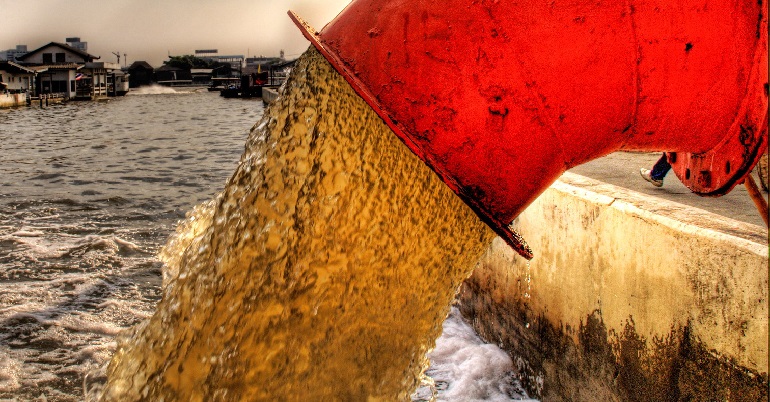Calls are being ramped up to bring water back into public ownership.

A petition calling for water companies to work for people not profit, has gathered almost 35,000 signatures.
The petition was launched by We Own It, campaigners for 21st century public ownership. The ‘stop sewage by taking back our water’ campaign points to how water company shareholders receive an average £1.6 billion a year, money which could be invested in water infrastructure to stop sewage.
The campaigners describe the dumping of huge amounts of raw sewage into the nation’s rivers and seas every day by private water companies as a ‘scandal,’ and shows how privatisation is failing. The activists note how England has sold off the vital national infrastructure to profit-making companies. Yet in Scotland and Northern Ireland, water is already in public ownership and in Wales it is not for profit. Publicly owned Scottish Water spends £72 more per household per year – around 34 percent more – on infrastructure compared to private water companies in England.
New figures show that in 2022, many of England’s best beaches suffered from 8,500 hours of sewage dumping. According to We Own It, attempting to regulate a privatised system won’t work, as it hasn’t since 1989 when the Water Act came into force which sold water to private water and waste water firms.
The campaigners list a number of reasons why regulation has failed. Privatised water companies are at no risk of losing their monopolies, so there is no competition, is one. A ‘hopelessly underfunded’ Environment Agency, which has seen its funding cut by 50 percent over the past decade, is another. The fines being issued to water companies are said to be too small, with firms seeing them as the cost of doing business and the go ahead to pollute. We Own It also says that Ofwat, the water regulator, is ‘hopelessly captured’ and there is a revolving door between people working at the water companies and people working in Ofwat.
The calls follow plans unveiled by Ofwat last month to prevent customers from funding water company executive bonuses that have not been earned through the company’s performance. The regulator will regularly review all executive director bonus payments and expects remuneration committees to consider performance for customers and the environment when awarding bonuses.
On April 3, the government announced a ‘plan for water’, which sets out how to achieve cleaner and more plentiful water. Over £1.6 billion of new investment will be directed into infrastructure to improve the water quality of the nation’s rivers, coastal waters and lakes, and to secure future water supplies, the government and Ofwat announced.
Whilst the two-year plan was hailed as a victory for campaigners pushing to clean up England’s waterways, We Own It has denounced the £1.6bn investment as tiny compared to what could be reinvested by stopping private dividends.
Meanwhile a report by openDemocracy reveals that water companies have threatened to hike customers’ bills if the government made them clean up the sewage they dumped in rivers. One company, which recorded profits in the excess of £100m last year, called proposed government targets “demanding” and argued they would result in more customers struggling to afford bills. It said the “level of investment required” would lead to “upward pressure on customer bills” and “a significant increase in the number of households in water poverty and struggling to pay their bills.”
Water campaigner Feargal Sharkey told openDemocracy the companies’ threats to increase prices “appear to be an attempt to extract even more cash from the pockets of bill payers.”
The singer added that the industry was “continuing its attack on working families,” and branded the price rises “uncalled for, unwarranted and unjustified” and the lobbying a “smokescreen for profit and greed.”
Gabrielle Pickard-Whitehead is a contributing editor to Left Foot Forward
Left Foot Forward doesn't have the backing of big business or billionaires. We rely on the kind and generous support of ordinary people like you.
You can support hard-hitting journalism that holds the right to account, provides a forum for debate among progressives, and covers the stories the rest of the media ignore. Donate today.



